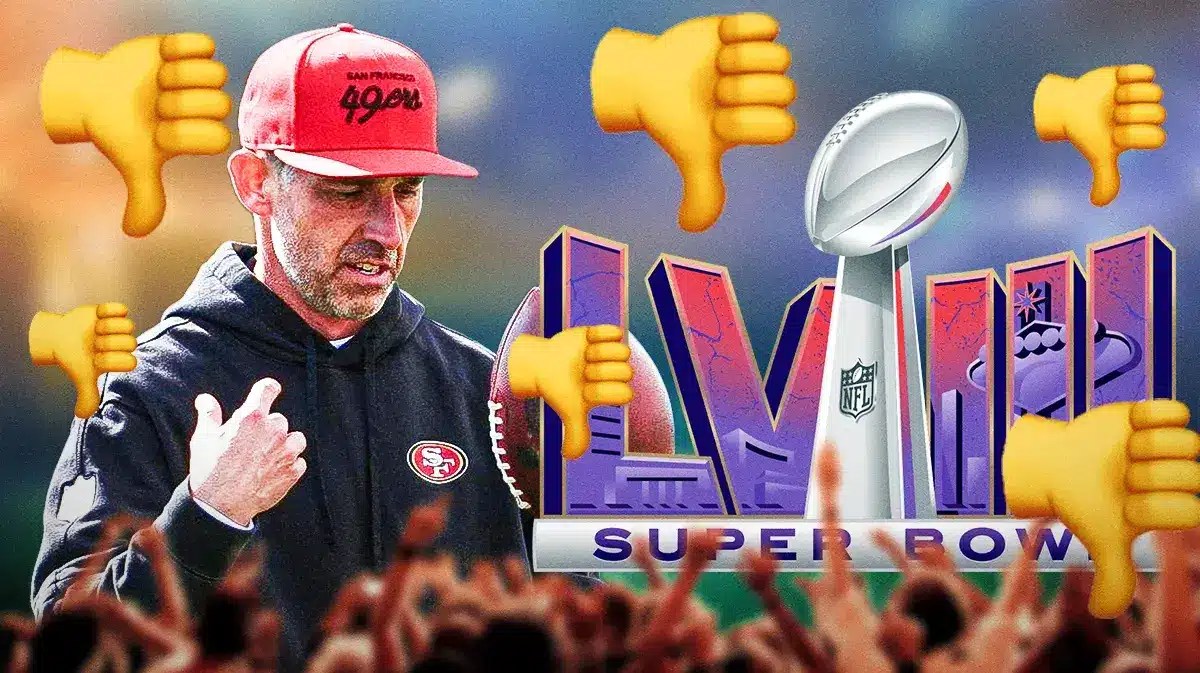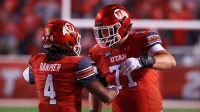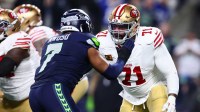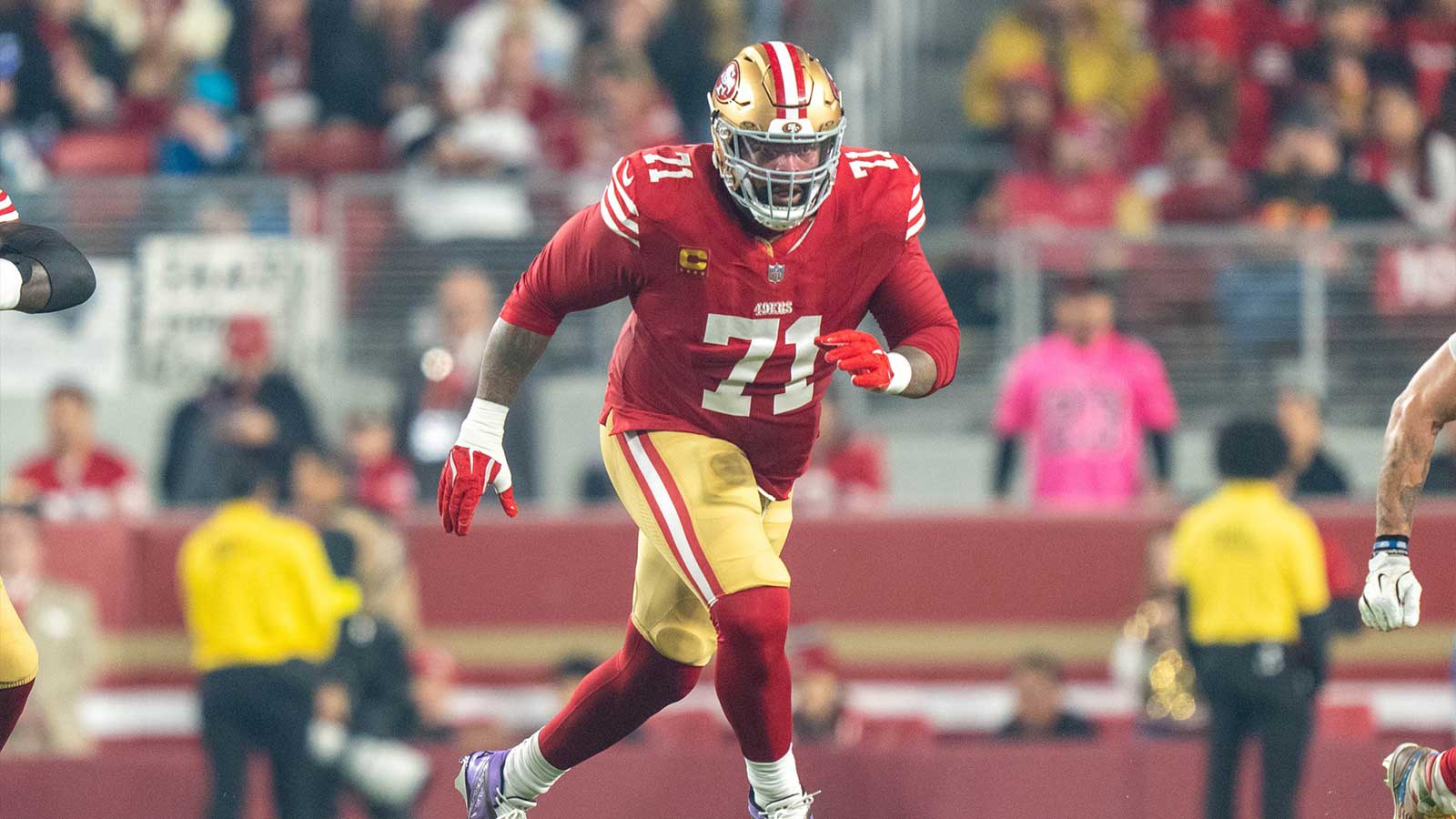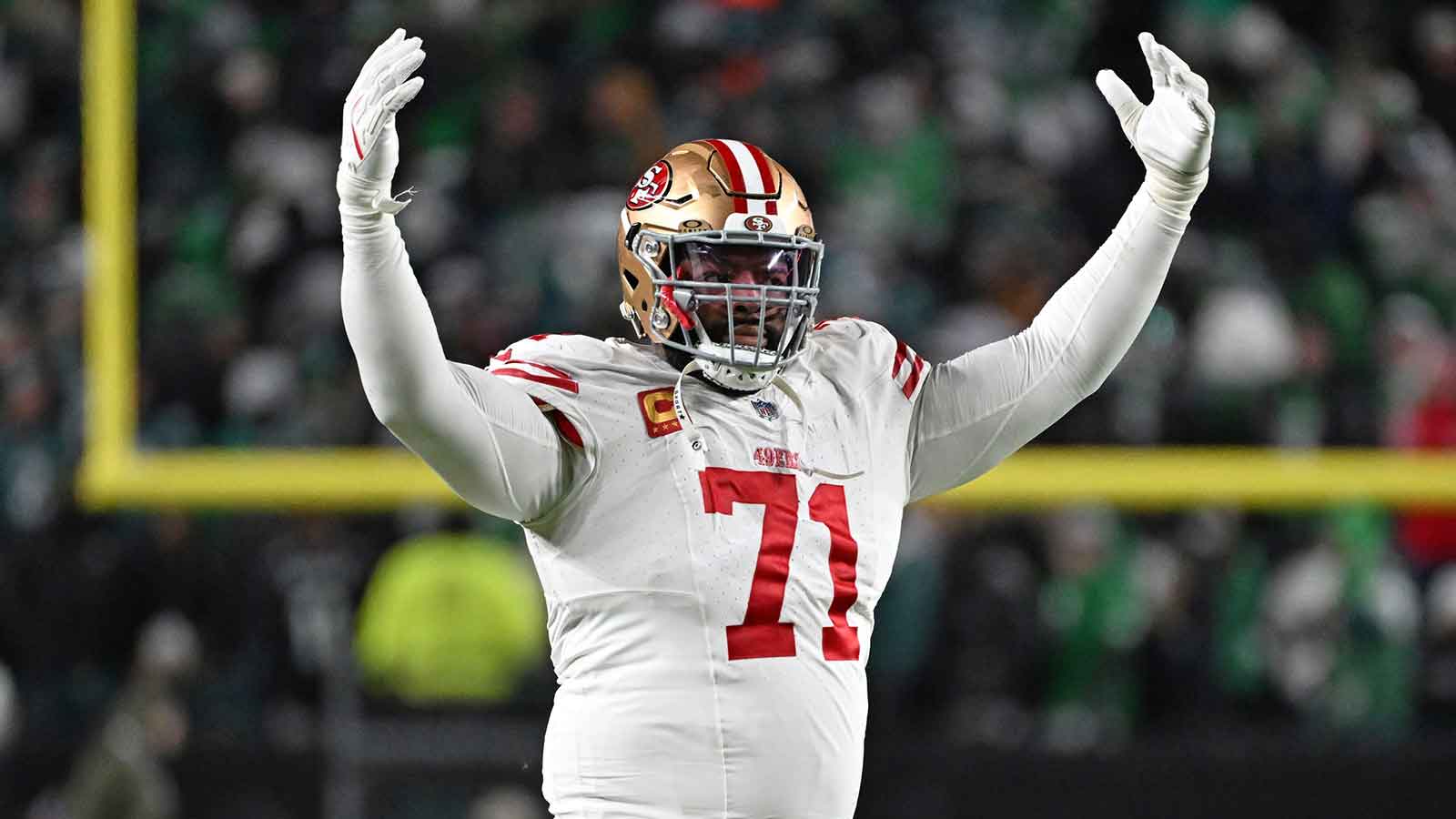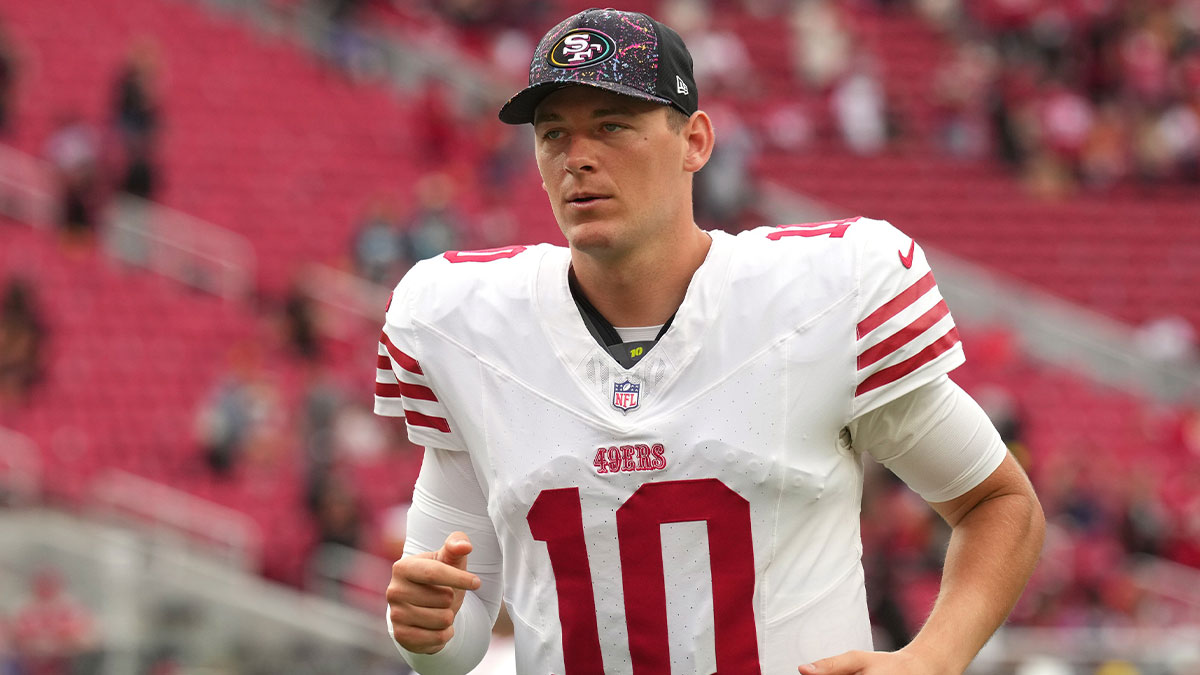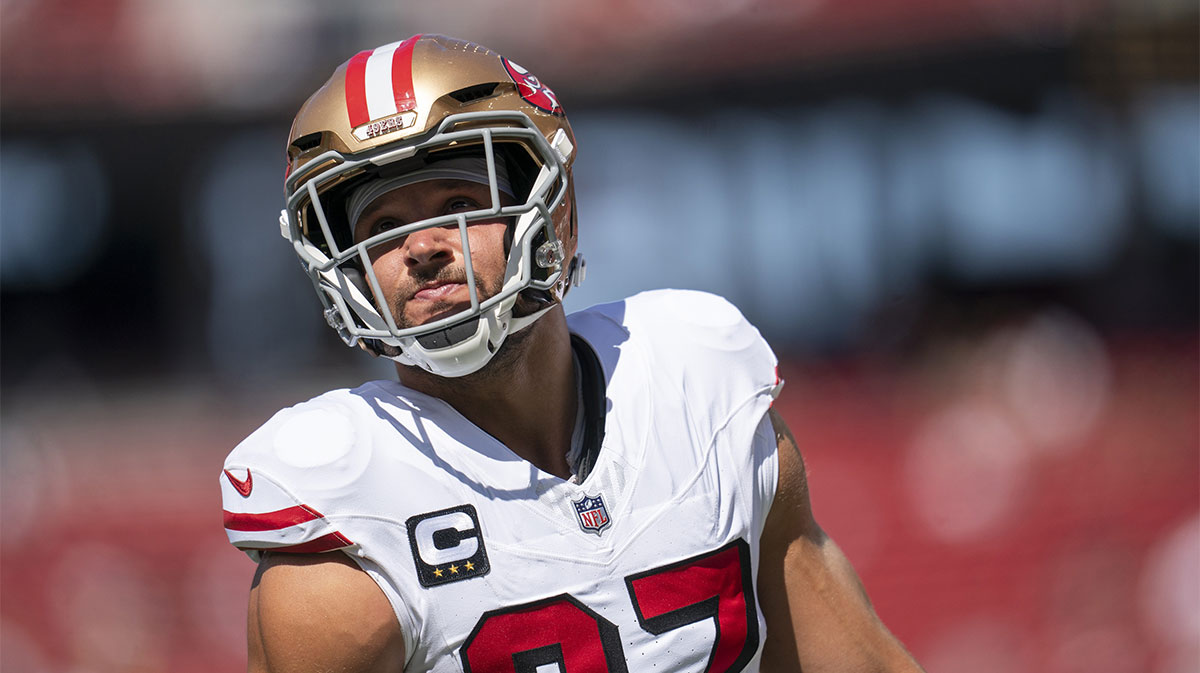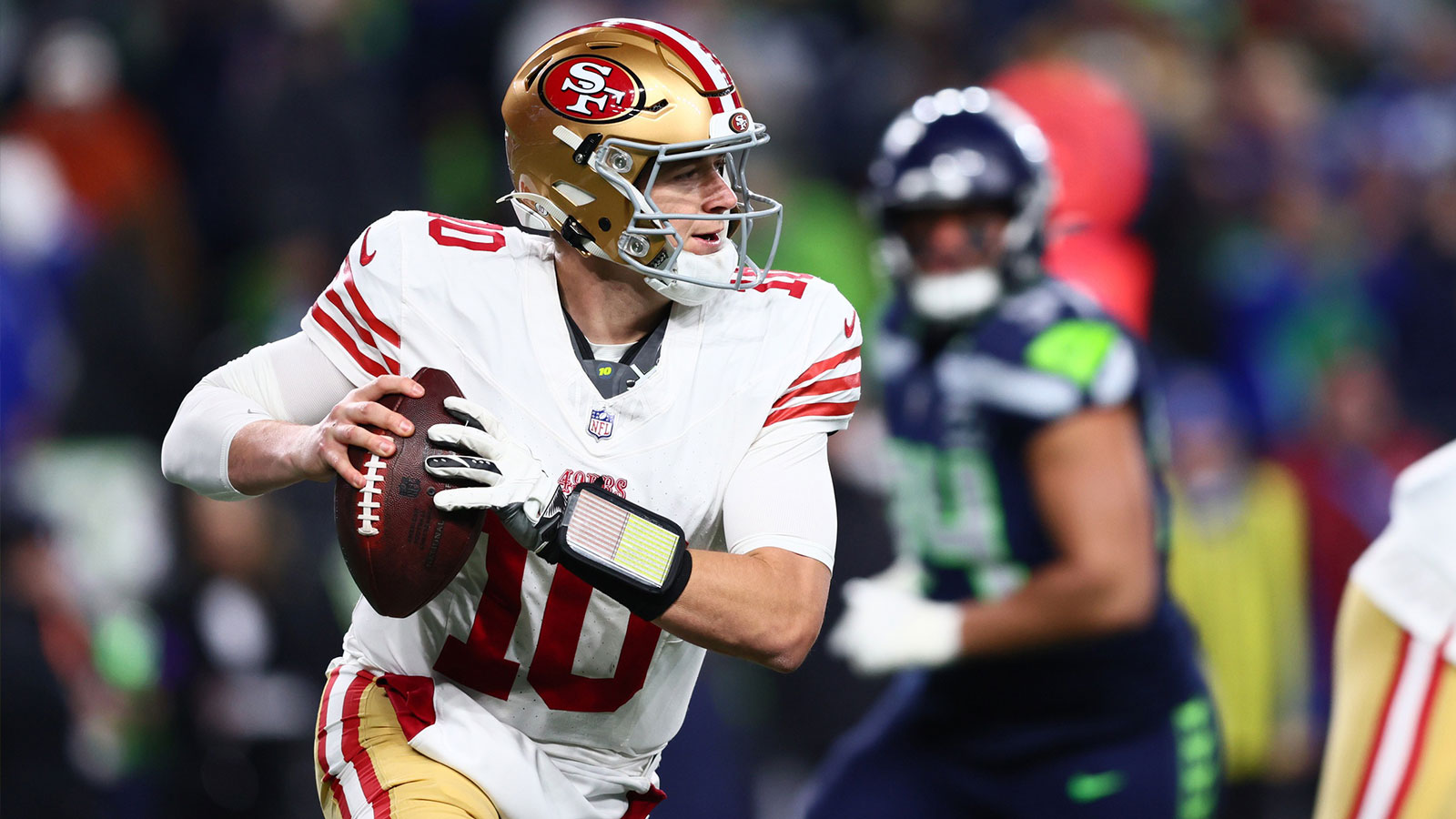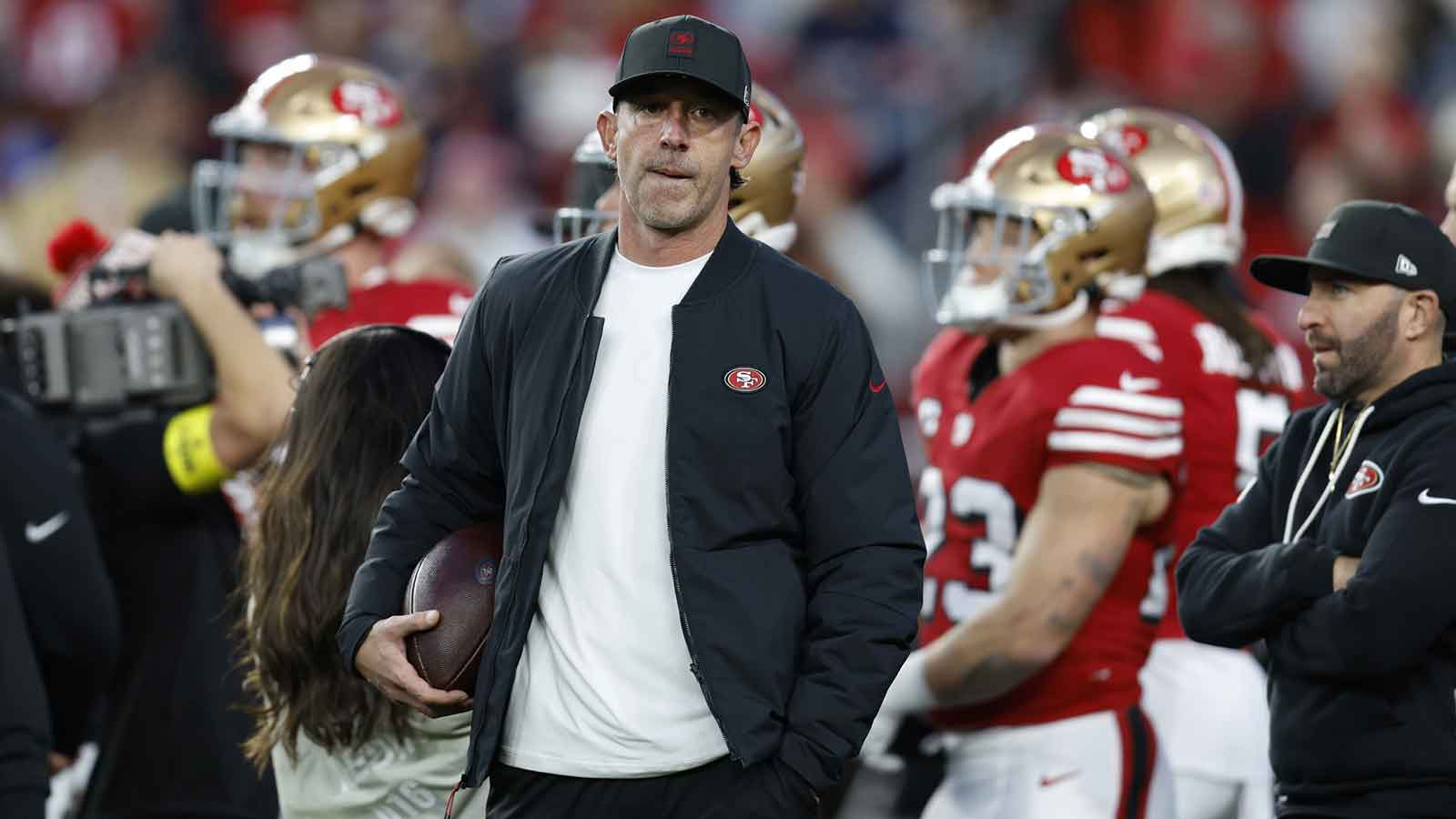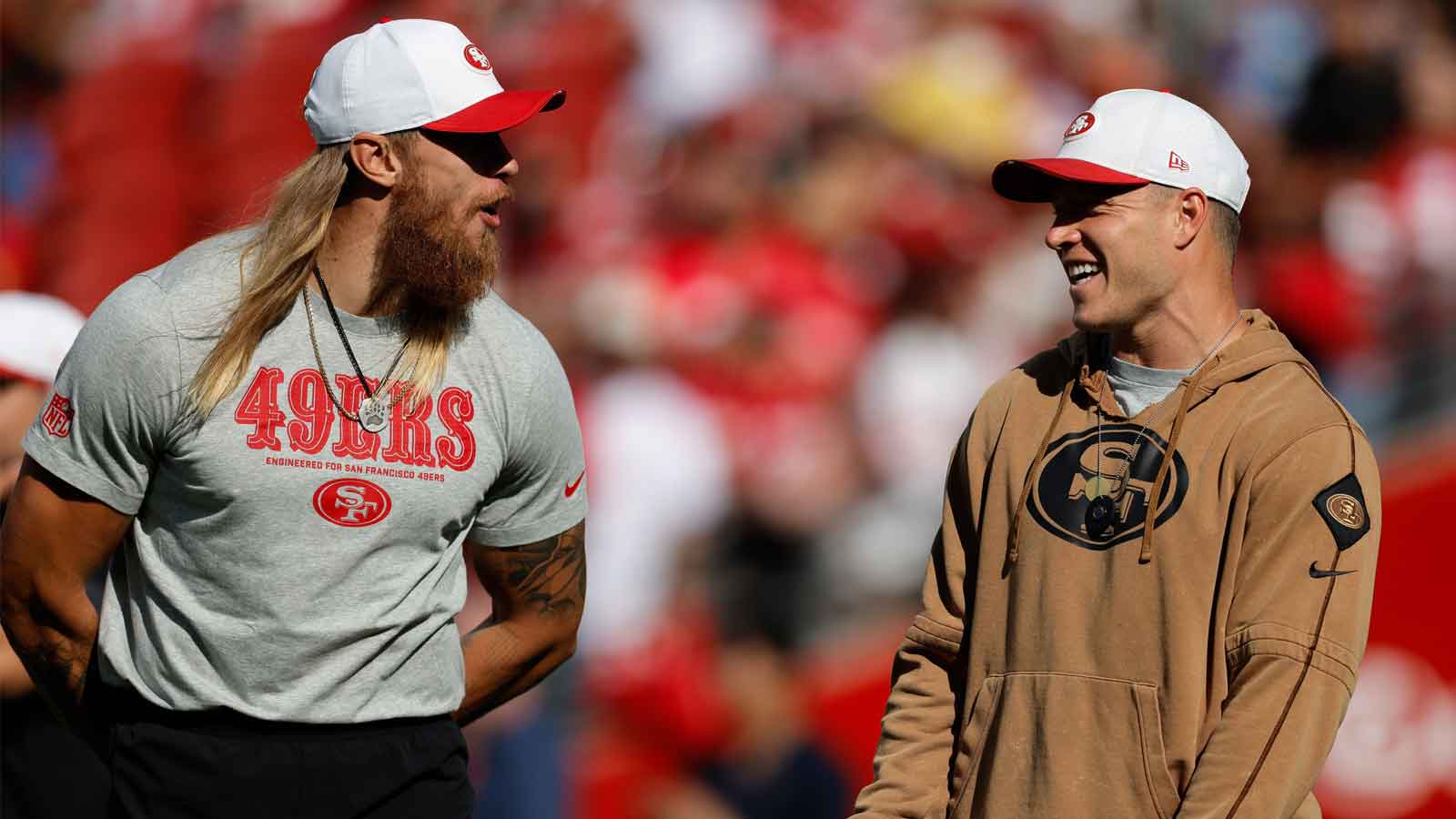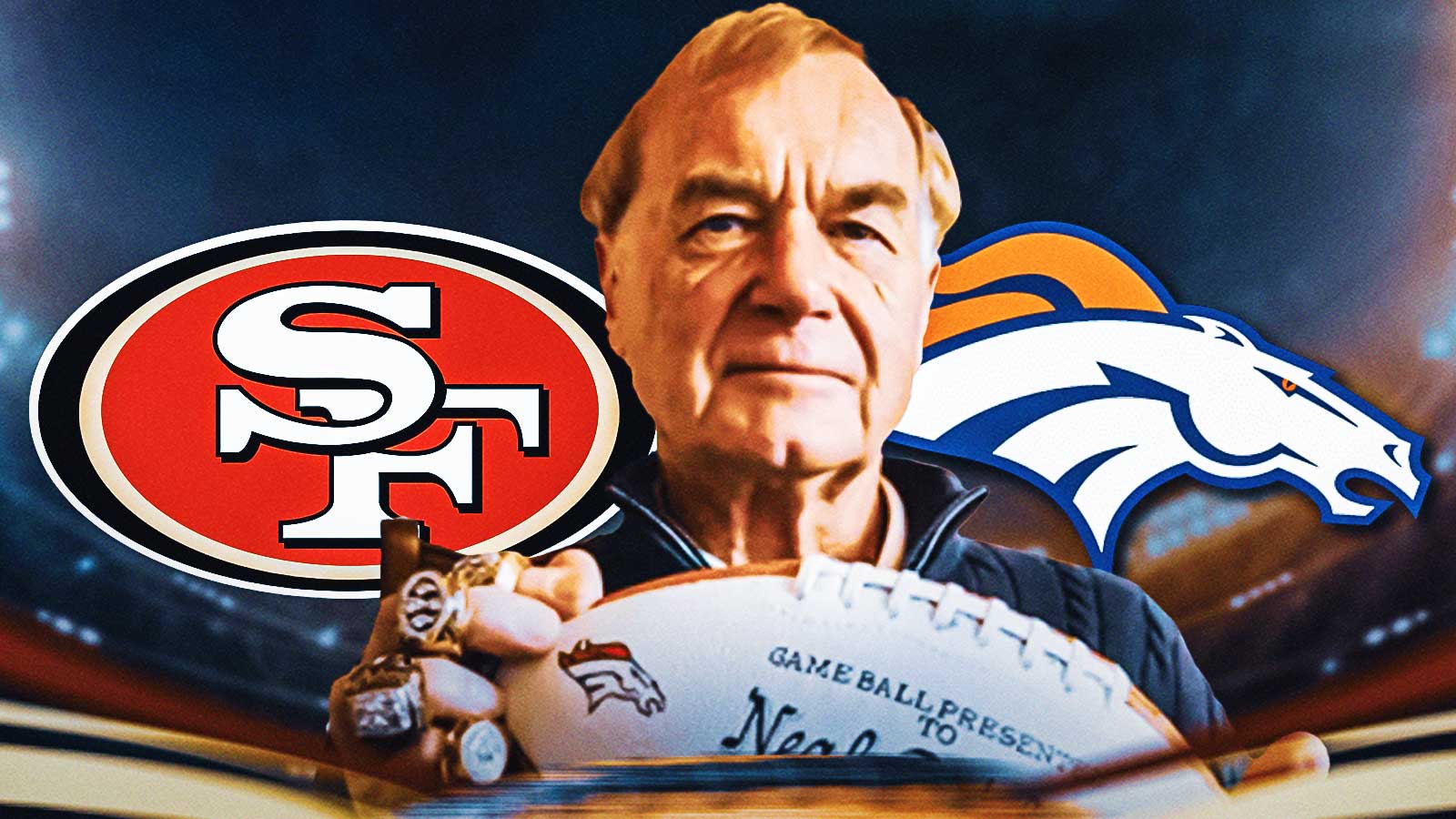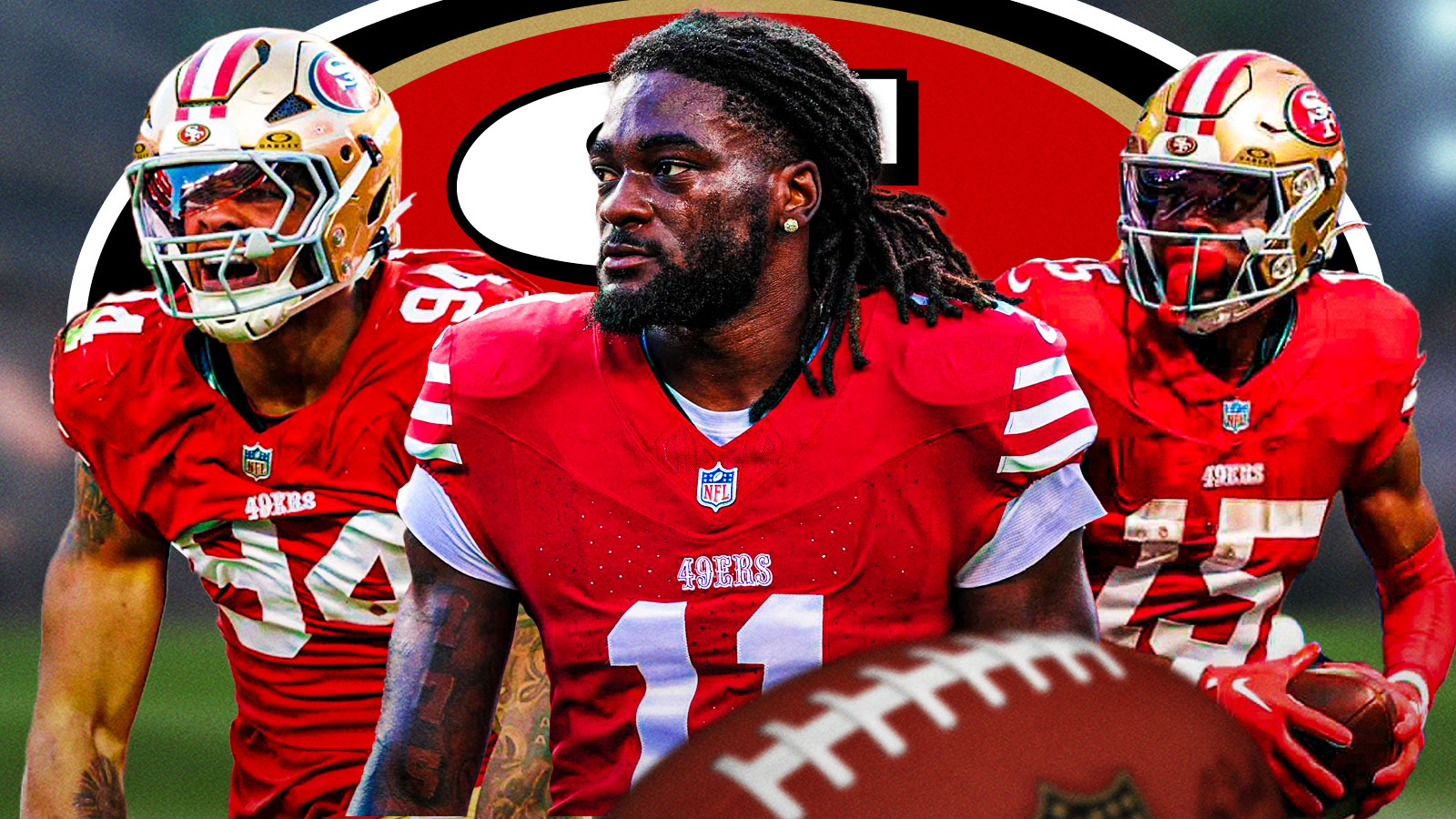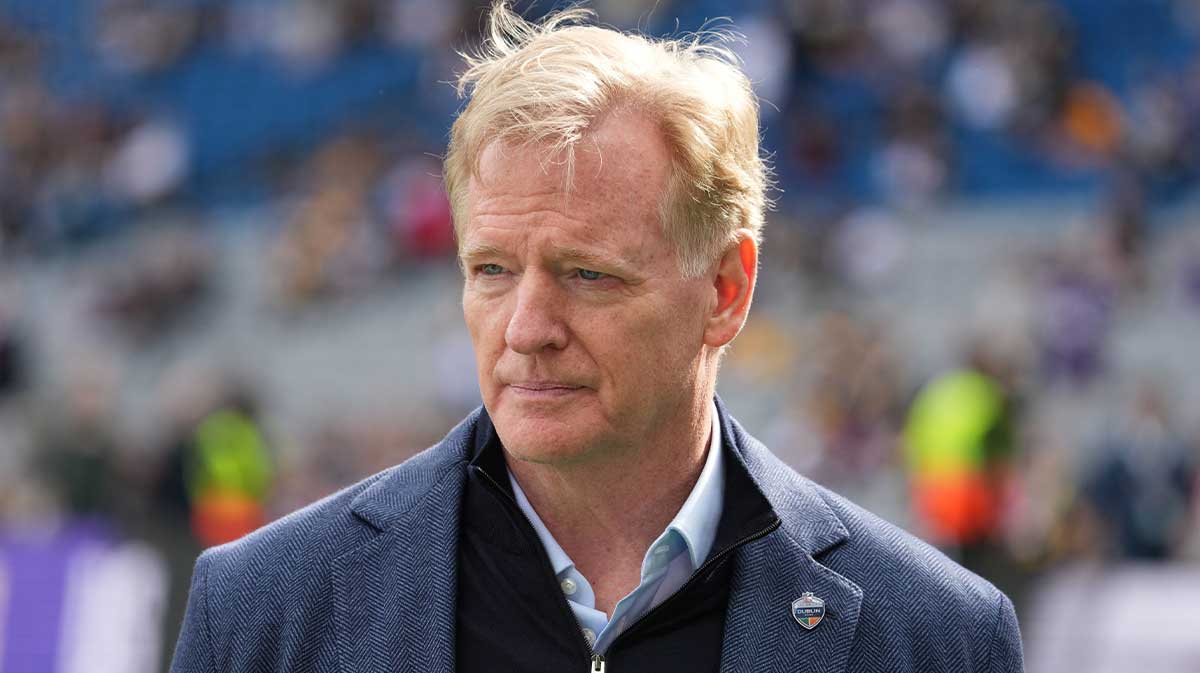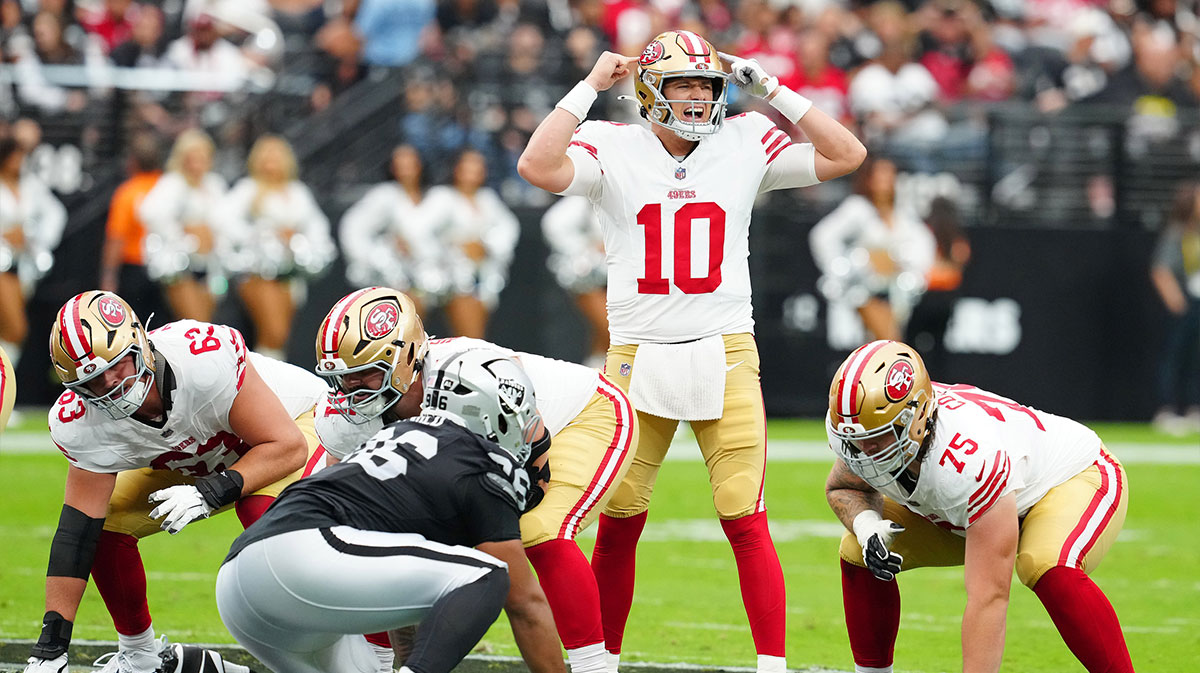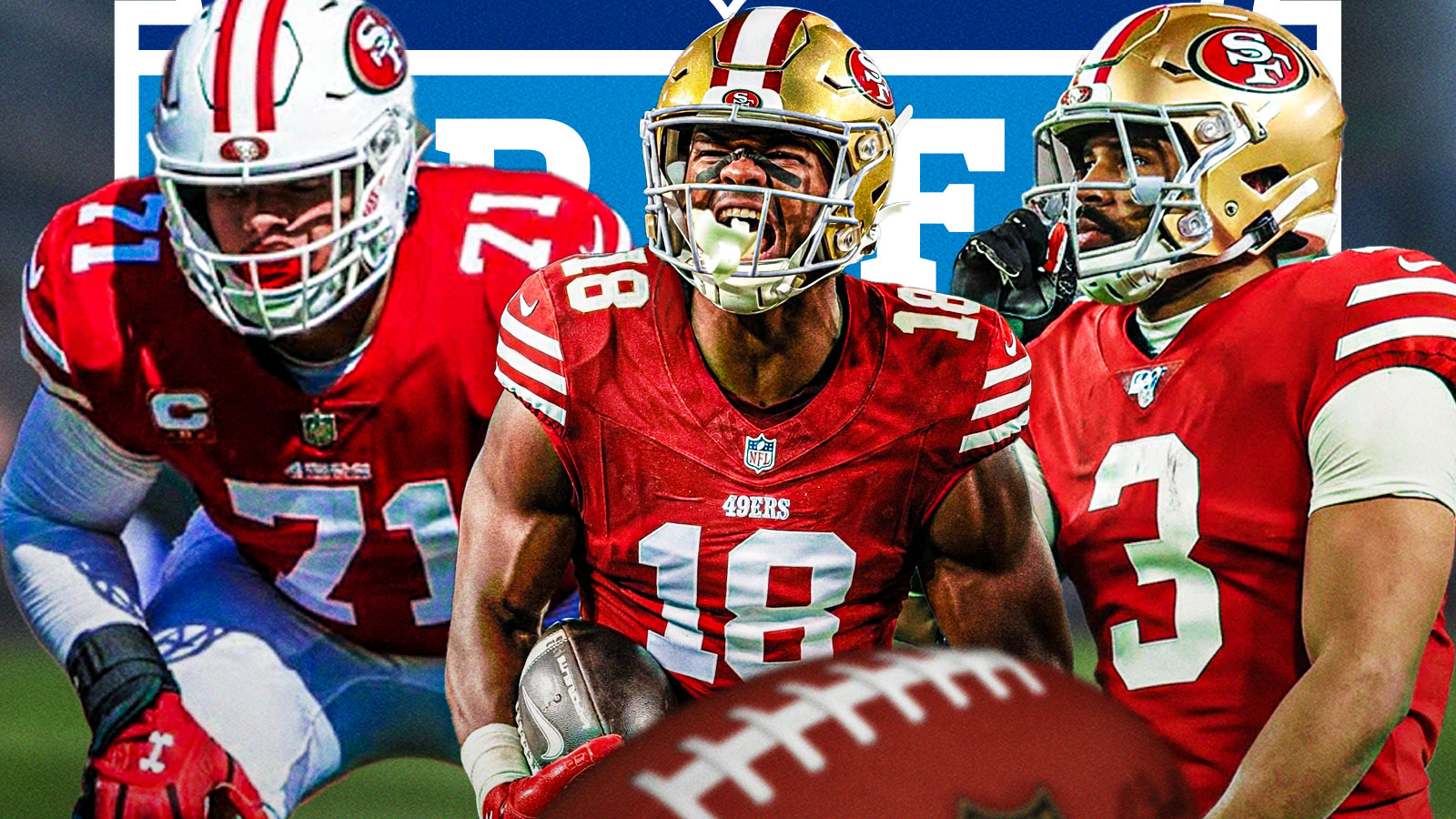The Kansas City Chiefs and San Francisco 49ers competed to the very last whistle in Super Bowl 58, which culminated with a Chiefs touchdown to walk the game off in overtime. The 49ers won the coin toss, but Kyle Shanahan made the ill-fated decision to take the ball first instead of playing defense and seeing what the Chiefs were able to do.
This decision is called ill-fated because it didn't work out. However, did Shanahan make the wrong decision and doom his team? It's easy to say he did as a Monday morning quarterback, but the reality is more complicated. Let's take a closer look.
The postseason rules have changed
Many years ago, NFL rules dictated that overtime games followed a true sudden-death format. That meant the first team to score won the game. Unfortunately, this rule disproportionately favored the offense as they only needed to drive 30 or 40 yards down the field to kick a field goal. The NFL changed the rule in 2010 to where a field goal wouldn't end the game, but a touchdown would.
This partial sudden death format still ended up being too easy for offenses. Even worse, when two teams with elite offenses found themselves in a shootout, this format nearly ensured that whichever team won the coin toss would win the game. This rule was unfair to both teams and also robbed the fans of an incredible viewing experience.
The NFL changed the rules ahead of the 2023-2024 postseason so that overtime games in the playoffs would have a different format. According to the new rules, a touchdown would not end the game without the opponent having a chance to respond. The only type of score that could end the game on the first possession would be a defensive score.
Inside Kyle Shanahan’s decision: The third drive
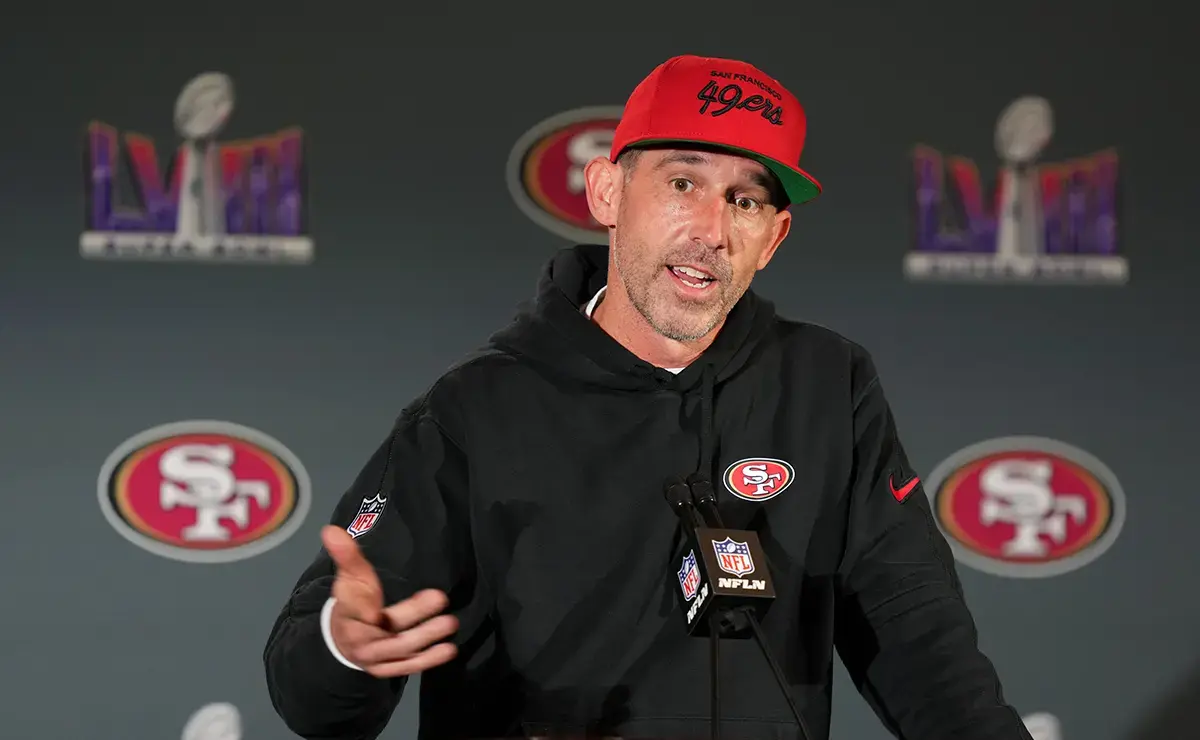
On a macro level, the reasoning behind Shanahan's decision was sound. Shanahan said after the game that his reasoning for taking the ball first was that if it came down to a third possession, his offense would have the ball in their hands in a sudden-death format where they would just need a field goal to win.
However, it is important to take into consideration who the opponent is.
In Super Bowl 58, Shanahan was facing a Chiefs offense led by arguably the greatest player to ever live. There was no reason to give Mahomes any advantage. Although the Niners scored a field goal on their possession, the Chiefs knew what they needed to do and Mahomes and company got the job done.
The Chiefs knew what they needed to do
On Kansas City's possession, they faced the 4th-and-1 situation. The Chiefs could have attempted a long field goal in that spot, but they knew that by doing so they would only extend the game. If they missed the kick they would lose and if they made it, San Francisco would only need a field goal to win the Super Bowl.
The Chiefs dialed up a quarterback keeper, Mahomes ran untouched for a first down, and the rest is history. This sequence demonstrates the importance of knowing what you need to do to win, which is why Shanahan would have been better off playing defense first and getting the second drive for his offense when they knew what Kansas City had done.
The 49ers had the best defense in football this year
The 49ers had the best defense in football in the 2023-2024 season. The only team that could even come close to credibly claiming the top spot is the Baltimore Ravens, and Chase Young's addition to the 49ers already ferocious front seven cemented their spot as the best defense in the game.
This should have changed the calculus for Shanahan. He should have trusted his defense to get a stop, which would have put the game in the hands of Brock Purdy, Christian McCaffrey, and the 49ers’ lethal offense.
Having an elite defense gave Kyle Shanahan plenty of flexibility, and it is a shame for the 49ers that he didn't exercise it more effectively. Not only would the defense have made the job extremely easy for Purdy in the offense if they were able to get a stop on the first possession, but the defense being elite also allows more room for error.
Under the old rules, the decision Shanahan made absolutely makes sense, especially going against a quarterback of Mahomes’ caliber. When the team with the ball first can win the game by scoring a touchdown without giving the opponent a chance to answer, you always want the ball first.
With that rule no longer in place, however, the calculus changes. It would have been better for the 49ers to force the Chiefs to score and put pressure on Kansas City to score a touchdown on their opening possession. Even if they did, as long as the 49ers matched there would still be hope. The 49ers defense had successfully stopped Kansas City's offense several times throughout regulation play. They would still have had a say in the outcome of the game by generating a stop to give the ball back to their offense.
Having an elite defense gave Shanahan more flexibility, and he did not use that flexibility to maximize his options.
So, what was the right decision?
Let’s start by making one thing clear: There was no “right” decision for Kyle Shanahan to make. However, by making the decision that he did, Shanahan put his team at a disadvantage. The goal in overtime — or in any situation, really — is to give yourself as much flexibility as possible at the most important moment. This is especially true when you aren’t sure what to do or when there is no obvious correct choice.
If Shanahan had elected to play defense first instead of receiving the ball, it would have given him more flexibility. He would have been able to see what Kansas City was able to accomplish on their first drive. Knowing what the Chiefs did and what his team needed to do to score would be extremely valuable to Shanahan as a playcaller and to the 49ers offense, especially their young quarterback.
Doubters of this strategy would likely point to the possibility that the Chiefs could score a touchdown and force San Francisco to match, or that it would get to a third possession where the Chiefs would only need a field goal to win. This is an understandable argument, a logical argument even. However, this argument ignores one key factor: The 49ers defense. Because San Francisco has arguably the best defense in the entire NFL, that lowers the risk of this strategy while increasing the potential reward. If the Chiefs were going to go down and score a touchdown, they likely would have done this whether it was their first or second drive.
To demonstrate this, the 49ers elected to kick a field goal on their first possession. They didn’t know what Kansas City would do. When the 49ers kicked their field goal, they were within the 10-yard line. If Shanahan had known that Mahomes was going to score a touchdown, he would have gone for it and would’ve had a good chance of scoring. Because of Shanahan’s decision to take the ball first, he put himself in a situation where he had to make a difficult call without a lack of information to influence his decision.
Even if the game went to a third possession, the 49ers’ defense would again have a chance to save the day and prevent the Chiefs from getting into field-goal range. As great as San Francisco’s offense is, the defense is the greatest strength of this 49ers team. Shanahan should have trusted his defense and relied on them to get a critical stop if necessary.
All of these factors mean that the decision to kick off and play defense first was the correct decision. Kyle Shanahan should have elected to kick off to start the overtime quarter in Super Bowl 58.

